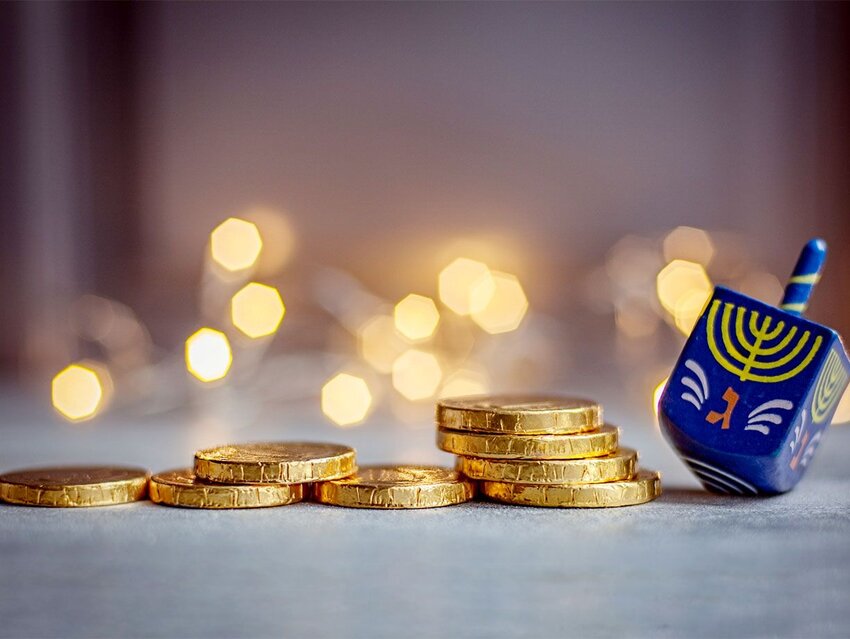Hanukkah, otherwise known as the Festival of Lights, is a Jewish holiday usually observed in early December, dependent on the Hebrew calendar. The eight-day festival has been celebrated for more than 2,000 years to commemorate the recovery of Jerusalem and the rededication of the Second Temple after the Maccabean revolt.
Along with the holiday comes a slew of quintessential Hanukkah terms, from playing dreidel with the family to digging into a plate of freshly made latkes. We've found the origins of these popular Hanukkah terms to help keep you celebrating throughout the season.
Chanukah
“Chanukah,” which means “consecration,” is just an alternate spelling for “Hanukkah,” and both are technically correct. Chanukah is the traditional term, while Hanukkah is more widely used today. The alternate spelling comes from the translation process from Hebrew to Latin characters, some of which do not exist in both alphabets.
Hanukkiyah
Pronounced “hah-noo-kee-YAH” or “hah-noo-KEE-yuh,” this word means "Hanukkah lamp," or more commonly known as a menorah. This holiday candelabra features nine candle holders, one for each night of Hanukkah and one to light the rest. The ninth candle is called the shamash, or “helper” candle. This stems from the meaning of the Hebrew word shamash — “attendant.”
Dreidel
Dreidel, a four-sided spinning top, is perhaps the most popular game of Hanukkah. Its etymology dates back centuries to the Yiddish word dreydl meaning “to turn.” In Hebrew, the name for a dreidel is sevivon. Dreidel is still played today, and celebrated in children's songs, making it a staple activity of the holiday.
Nes Gadol Hayah Sham
“A great miracle happened there.” This phrase is a direct reference to the miracle of the oil, which lasted for eight nights instead of one, at the Temple. The Hebrew letters (nun, gimmel, hey, and shin) on a traditional dreidel represent the phrase “nes gadol hayah sham” on each of its four sides. When playing dreidel, these letters directly determine the outcome of the game, depending on what each player lands on.
Gelt
Gelt is the Yiddish word for money. The meaning of Hanukkah gelt can be traced down multiple paths, including redistributing wealth to orphans and widows, and claiming political autonomy. But the modern Hanukkah gelt mostly refers to the gold foil-wrapped chocolate coins that are perfect to gamble with during a game of dreidel.
Rock of Ages
This is the English version of the Hebrew song Maoz Tzur, which has been sung during Hanukkah celebrations since the 13th century. The hymn’s name means "Strong Rock (of my Salvation)," which is where the English version’s name gained its inspiration.
Latke
No traditional Hanukkah celebration is complete without latkes. Served with sour cream and applesauce, these crisp potato pancakes are the highlight of many family dinners during the festival. The history of this dish goes back centuries. The word “latka” itself likely stems from the Russian latka, meaning a type of pastry or pancake.
Sufganiyot
Pronounced “soof-GAH-NEE-yote,” these little round doughnuts are fried in oil, filled with custard or jam, and topped with powdered sugar — the ultimate Hanukkah sweet treat. Their unique name might stem from the Greek word “sufan,” which can mean “spongy” or “fried.” There is also a word in Arabic, “sfenj,” that refers to small, fried doughnuts. It is believed that either of these sources could be the origin of “sufganiyot.”
Featured image credit: Sima_ha/ iStock

